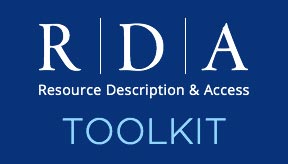Making RDA Relevant to the Broader Community : a statement from the RDA Board
RDA is a continually evolving standard that aims to reflect the requirements of the description, cataloguing and metadata community. One of its original aims was to be applicable across cultures, sectors and perspectives. What does that mean, and what is happening to make that a reality?
RDA is a package of data elements, guidelines, and instructions for creating library and cultural heritage resource metadata that are well-formed according to international models for user-focussed linked data applications.
As we continue to develop the standard it is essential that we broaden the range of perspectives applied to the development of the standard to ensure that it reflects a wide range of different cultural perspectives. The benefit of doing this was envisioned as RDA was developed. As more organisations develop rich and compatible data sets about their holdings, RDA can enable these data actively to be shared across the globe to open up and increase the discoverability of collections for the benefit of the users we serve.
RDA has now reached a critical point in this development and the key to its continued success is a firm commitment to further internationalisation and exploration of wider cultural heritage description communities.
In 2015, the Committee of Principals announced a new Governance model and their intention to begin a process of transition over the next 3-4 years.
As a first step, the names of the Committee of Principals and Joint Steering Committee (JSC) were officially changed to the RDA Board and RDA Steering Committee on the 6th November 2015 at the JSC meeting in Edinburgh, Scotland.
At their meeting in Ottawa in April 2016, the RDA Board approved the final package of changes which outlines how the current structure will gradually be implemented over the next three years. This included the following key outcomes:
• The overall definition of a National institution will be “a national agency which has implemented RDA or will have implemented RDA within a calendar year.” The RDA Board will publish guidance as part of the selection process to provide sector specific definitions of the National Agency. For libraries, RDA Board will use the IFLA definition for the National Bibliographic agency.
• A role description for National Institution representatives was determined.
• National Institution representatives will be appointed to Board by an application and selection process.
• National Institution representatives will serve for three years. To aid transition to rolling terms, currently represented regions will have the following initial terms
- North America: 2017-19
- Europe: 2017-21
- Oceania: 2017-2018
• RDA Board will begin to identify where there are eligible National Institutions in Africa, Asia, Latin America and the Caribbean.
• A set of requirements for regional representative bodies and the minimum requirements for the regional representative to RDA Steering Committee were developed.
• The following roles will be appointed by an application and selection process and will usually serve for four years. However to aid transition they will have the following initial terms:
- Chair of Steering Committee: 2016-2018
- Wider Community Engagement Officer: 2017-20
- Technical Team Liaison Officer: 2017-21
- Examples Editor: 2017-18
- Translations Team Liaison Officer: 2017-19
• The Board will carry out proof of concept project to test a new online collaborative workspace for the RDA community.
The RDA Board and Steering Committee are working with current constituents in Europe, North America and Oceania to support them in the creation of a suitable regional structure. The European RDA Interest Group (EURIG) is the first regional body to make the transition and will take up their place on the RDA Steering Committee at the 2016 meeting in Frankfurt.
Call to action for Africa, Asia, and Latin America and the Caribbean
• Are you a National Library that has implemented RDA or will have implemented RDA within a calendar year?
• Are you involved in an RDA Interest Group in your region?
Please get in contact with Simon Berney-Edwards, Chair of RDA Board, at simon.berney-edwards@cilip.org.uk to discuss how you might get involved in the governance and development of RDA.
Posted: 24 June 2016
German translation posted 18 November 2018
